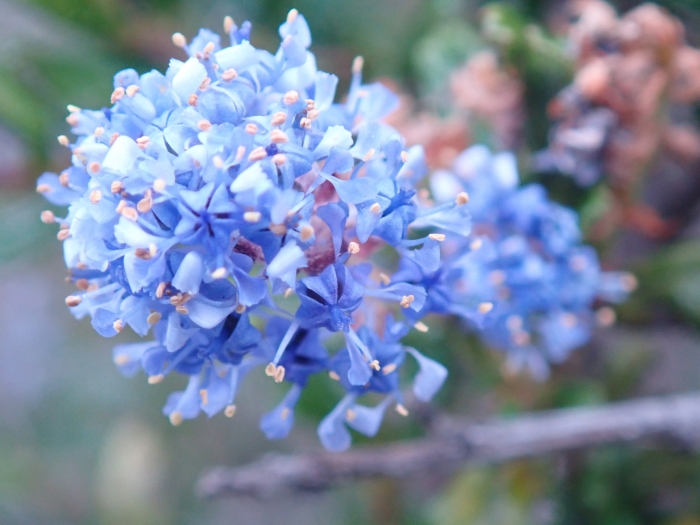Sandscrub Ceanothus
(Ceanothus dentatus)
Sandscrub Ceanothus (Ceanothus dentatus)
/
/

Henrik Kibak
CC BY 4.0
Image By:
Henrik Kibak
Recorded By:
Copyright:
CC BY 4.0
Copyright Notice:
Photo by: Henrik Kibak | License Type: CC BY 4.0 | License URL: http://creativecommons.org/licenses/by/4.0/ | Rights Holder: Henrik Kibak | Publisher: iNaturalist | Date Created: 2021-05-29T15:15:45-07:00 |























Estimated Native Range
Summary
Ceanothus dentatus, commonly known as Sandscrub Ceanothus, is an evergreen shrub endemic to California, specifically the Central Coast and Coast Ranges. It is adapted to chaparral and coastal sage scrub habitats, thriving on dry, rocky slopes and in canyons. This species typically grows to about 5 feet in height and width, with a dense, highly branched habit. The leaves are small, dark shiny green on the upper surface, and paler beneath, with a somewhat ruffled appearance. From late winter to early spring, Sandscrub Ceanothus is adorned with showy clusters of bright blue flowers that attract pollinators such as bees and butterflies.
Sandscrub Ceanothus is valued for its drought tolerance and ability to thrive in poor, well-drained soils, making it an excellent choice for water-wise gardens and native plant landscapes. It is often used for slope stabilization, habitat restoration, and as an ornamental in residential gardens. While it prefers full sun, it can tolerate some shade. Minimal supplemental water is needed once established, reflecting its adaptation to California’s Mediterranean climate. There are no widely known cultivars of this species, but its natural form is well-suited to cultivation. Potential problems include root rot in poorly drained soils and susceptibility to pests like aphids and scale insects. It is not known to be invasive when grown outside its native range, but as with all native plants, care should be taken to avoid introducing it into ecosystems where it could potentially become problematic.CC BY-SA 4.0
Sandscrub Ceanothus is valued for its drought tolerance and ability to thrive in poor, well-drained soils, making it an excellent choice for water-wise gardens and native plant landscapes. It is often used for slope stabilization, habitat restoration, and as an ornamental in residential gardens. While it prefers full sun, it can tolerate some shade. Minimal supplemental water is needed once established, reflecting its adaptation to California’s Mediterranean climate. There are no widely known cultivars of this species, but its natural form is well-suited to cultivation. Potential problems include root rot in poorly drained soils and susceptibility to pests like aphids and scale insects. It is not known to be invasive when grown outside its native range, but as with all native plants, care should be taken to avoid introducing it into ecosystems where it could potentially become problematic.CC BY-SA 4.0
Plant Description
- Plant Type: Shrub
- Height: 1-5 feet
- Width: 3-6 feet
- Growth Rate: Moderate
- Flower Color: Blue
- Flowering Season: Spring, Summer
- Leaf Retention: Evergreen
Growth Requirements
- Sun: Full Sun, Part Shade
- Water: Low, Medium
- Drainage: Fast, Medium
Common Uses
Bee Garden, Bird Garden, Butterfly Garden, Drought Tolerant, Erosion Control, Low Maintenance, Showy Flowers
Natural Habitat
Chaparral and coastal sage scrub
Other Names
Common Names: Sandhill Ceanothus, Crop-Leaf Ceanothus, Dentate Ceanothus
Scientific Names: , Ceanothus dentatus, Ceanothus dentatus var. dentatus, Ceanothus papillosus var. dentatus,
GBIF Accepted Name: